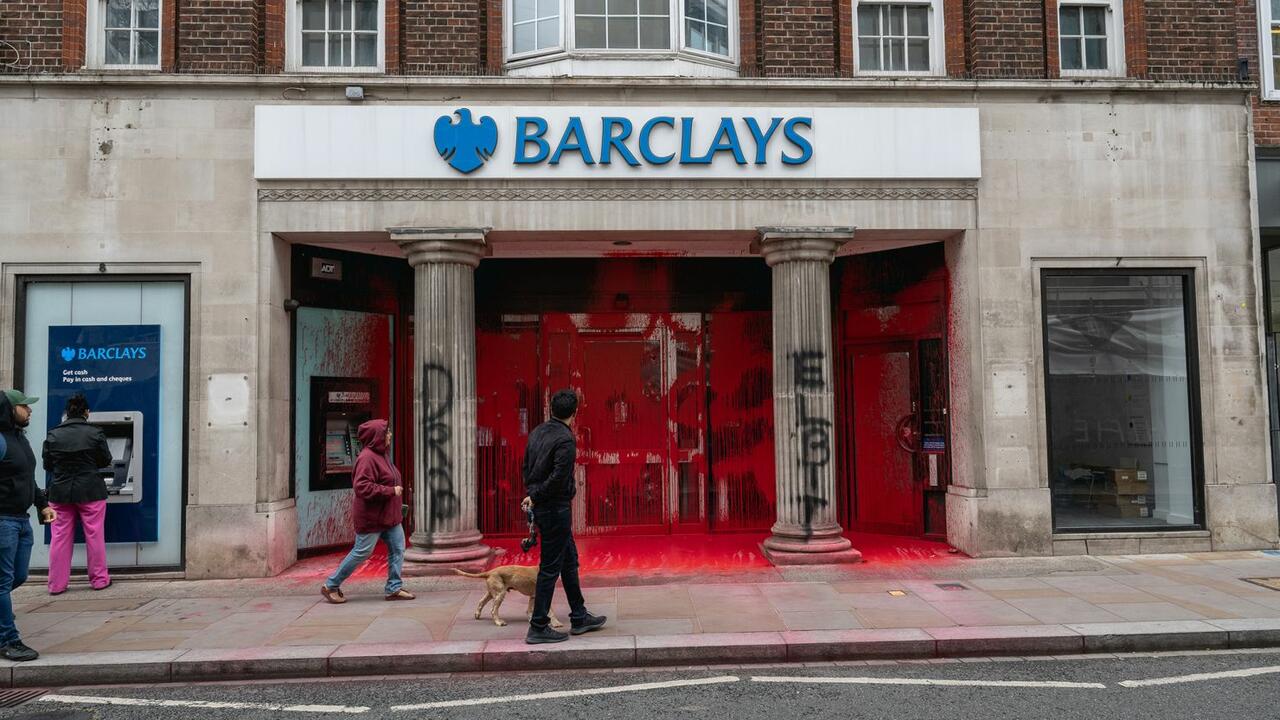Barclays To Withdraw From Israel Bond Auction Amid Pro-Palestine Backlash
British banking giant Barclays is planning to withdraw from new Israel government bond auctions amid pressure from pro-Palestine activists, the Financial Times reported.
The British newspaper said the bank is trying to address criticism of its investments in Israel, which have been put under the spotlight following the start of Israel's war in Gaza.

Bonds are a form of debt that are sold by states to international and domestic investors in order to raise funds for public spending, with interest being paid by the state to the bond holder.
Barclays will be withdrawing from the purchase of future Israeli bond offerings, but will continue acting as a "primary dealer", which helps the state to sell the bonds.
Thursday's report of a withdrawal does not mean a complete end to involvement by Barclays in the Israel bond market. The Financial Times quoted Israel's accountant general, Yali Rothenberg, who said: "We appreciate the bank’s statement affir
ming its continued commitment to the State of Israel."“It is crucial that leading global financial institutions, such as Barclays, choose to resist boycotting Israel and support its legitimate right to self-defence as a leading western democracy," he added.
Pressure on Barclays
Barclays has for years been the target of pro-Palestinian activism over its investments in Israel and its ties to the arms industry.
In June, pro-Palestine activists threw rocks and sprayed red paint on 20 branches of the bank over its ties to arms firms supplying Israel in its war on Gaza. Protest group Palestine Action claimed responsibility for the targeting of the buildings, adding that it worked in coordination with the climate group Shut the System.
The group said it "aims to halt the Palestinian genocide by undermining suppliers of weapons to the Israeli military… along with financial companies involved with these weapons suppliers."
In May, several Palestinian solidarity organizations published a report stating that Barclays has £2bn ($2.48bn) of investments in companies involved in supplying arms to Israel.
The list of firms in which the financial giant is reported to have interests includes Elbit Systems, and General Dynamics, a US arms firm that produces components for warplanes. Other firms include BAE Systems and Raytheon.
In a statement at the time, Barclays said it provides services to American, British and European companies "that supply defenze products to Nato and its allies."
"Barclays does not directly invest in these companies… Decisions on the implementation of arms embargos to other nations are the job of respective elected governments. While we support the right to protest, we ask that campaigners do so in a way which respects our customers, colleagues, and property," it added.
Israel is currently defending itself from charges of genocide at the International Court of Justice over its conduct in Gaza, where it has reportedly killed at least 39,000 people. Gaza sources say the vast majority of those were women and children.
Prosecutors at the International Criminal Court have also applied for arrest warrants against Israeli Prime Minister Benjamin Netanyahu and Defense Minister Yoav Gallant for crimes against humanity in the military campaign.

No comments:
Post a Comment